Embarking on a ketamine anesthesia treatment can be a new and exciting path toward wellness. It’s normal to have questions and maybe even feel a bit anxious, but we at Nortex Psychiatry are dedicated to guiding you through every step of the process, ensuring a comfortable and informed experience. Here’s a detailed guide to help you prepare for your journey.
Before Treatment
Planning Your Appointments: Dr. Clayton L. Allison, an expert in psychiatry, emphasizes the importance of early scheduling. “Setting up your appointments in advance allows for a structured treatment plan, which is crucial for the success of ketamine therapy,” he says. Consistent timing is key to maintaining a routine that your mind and body can adapt to.
Relaxation Techniques: Brittany Huckaby, a seasoned nursing professional, suggests engaging in calming activities like yoga, meditation, or even simple breathing exercises in the days before your treatment. “Relaxation practices can significantly reduce anxiety and improve the overall treatment experience,” she notes.
Post-Treatment Therapy Coordination: Dr. Allison recommends scheduling therapy sessions after your ketamine treatment. “Integrating therapy post-treatment helps in processing and understanding the experience, thus enhancing the benefits of ketamine,” he explains.
Avoiding Substances: Steering clear of illicit drugs and alcohol is crucial. Dr. Allison warns, “These substances can interfere with the effectiveness of the treatment and your body’s response to it.”
Music as a Therapeutic Tool: Check with your provider about incorporating music into your session. “Music can have a soothing effect and aid in creating a positive mindset during treatment,” Brittany Huckaby advises.
Prioritizing Sleep: Ensuring a good night’s rest before your appointment is essential. As Huckaby puts it, “A well-rested brain is more receptive to treatment.”
Hydration is Key: Drinking plenty of water in the days leading up to your treatment helps prepare your body. “Hydration is often overlooked but is a critical component of pre-treatment preparation,” Dr. Allison remarks.
Family Discussions: Prepare your family for post-treatment care. Discussing how you might feel afterward and what kind of support you’ll need can be beneficial.
During Treatment
Importance of Fasting: Avoid eating or drinking anything but water a few hours before treatment. “Fasting minimizes the risk of nausea and other side effects,” explains Dr. Allison.
Creating a Comfortable Environment: Wearing comfortable clothes and staying warm can significantly impact your comfort level. Huckaby suggests, “Bring items that make you feel secure, such as a favorite blanket or a soft pillow.”
Sensory Preparation: Consider an eye mask and headphones for a more introspective experience. Dr. Allison notes, “Reducing external stimuli can help patients focus on their internal experience.”
Setting the Scene with Media: Adjust the volume and settings of any music or TV to your comfort level.
Medical and Lifestyle Updates: Inform your provider of any recent changes in your medications or lifestyle. “Accurate information is crucial for customizing your treatment,” says Dr. Allison.
Mental Preparation: Focus on positive thoughts and intentions. Huckaby advises, “A positive mindset can significantly influence your response to treatment.”
Embracing the Experience: Dr. Allison encourages patients to embrace the dissociative aspects of the treatment. “Acceptance of the experience is key to unlocking its full potential,” he states.
After Treatment
Post-Treatment Care: Eating a light meal and resting are important steps. Huckaby emphasizes, “Your body needs time to recover and reorient itself after the treatment.”
Continuous Support: Ensuring the availability of a loved one post-treatment is crucial. “Having someone to talk to and help you process the experience can be incredibly beneficial,” Huckaby adds.
Continuing Relaxation Practices: Dr. Allison suggests maintaining calming activities to extend the treatment’s benefits.
Community and Discussion: Engaging with support groups or your personal network can provide additional support and understanding.
Alcohol Abstinence and Medication Adherence: Dr. Allison stresses the importance of avoiding alcohol and adhering to prescribed medications.
Regular Medical Follow-Ups: Keeping in touch with your medical team is essential for monitoring your progress and addressing any concerns.
Emergency Contact Plans: “If you experience distressing thoughts, reaching out to your provider immediately is vital,” Dr. Allison advises.
At Nortex Psychiatry, serving communities like Allen, McKinney, Frisco, and Dallas in Texas, we’re committed to providing a supportive and informative environment for your ketamine therapy journey. If you have any questions or wish to learn more about the process, don’t hesitate to reach out to us. Let’s embark on this journey to wellness together!


